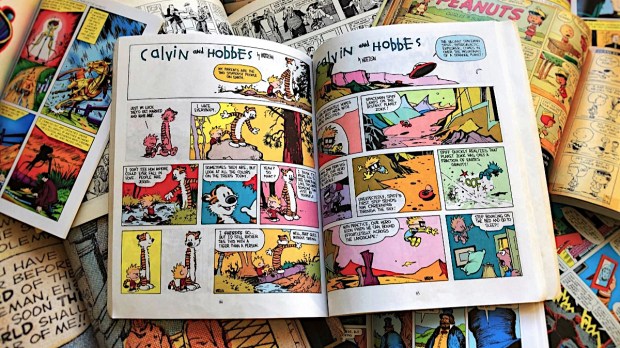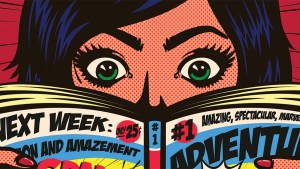Lenten Campaign 2025
This content is free of charge, as are all our articles.
Support us with a donation that is tax-deductible and enable us to continue to reach millions of readers.
When I spotted The Essential Calvin and Hobbes on Aleteia’s 2023 Summer Book List for Kids, I had to smile. That particular book is very significant to me because it seriously changed the trajectory of my oldest son’s life. Let me explain.
My oldest son was the first participant in my ongoing experiment I call homeschooling badly — although I suppose it went okay because he just received a full academic scholarship to study engineering at a Catholic college this fall. Okay, I’m bragging. But when you see how little I had to do with my son’s success, perhaps you’ll humor me.
Like many first-borns, my son was a cooperative kid who listened attentively at read-a-loud time. He was always happy to do his “seat work” (writing his name, letters and numbers) in kindergarten. He even expressed an interest in the sciences at a young age, excited to visit museums and to participate in messy kitchen experiments.
In short, I never worried about my son’s willingness to study. But when he was around eight years old, I began noticing that he found little joy in reading. It was a chore — or, even more sadly, something that felt like punishment for him.
An essential discovery
Enter a mischievous cat and his rascally sidekick. Our babysitter brought over The Essential Calvin and Hobbes one night and my son’s life was never the same. My husband and I returned from dinner to find our quiet boy sitting up in bed with a flashlight, laughing aloud, his voice echoing throughout the house.
Over the next few weeks, it was very common to find my oldest son and his brothers sitting on the sofa reading the book. It passed between them so many times, in fact, that the cover ripped off. I was thrilled, but since I was unfamiliar with the content, I decided I’d better do a little research.
That’s when I discovered the many valuable philosophical lessons Calvin and Hobbes had to offer. I also learned about a 1988 study that showed the rich vocabulary of comic books exceeds that of normal human conversation as well as regular books. Right away, I ordered Bill Waterson’s complete Calvin and Hobbes collection. Again, I was met with a profoundly positive response — kids who were so happy to read, they didn’t even notice when I unplugged the TV and moved it to an upstairs bedroom where it has remained for over a decade (used often, but more intentionally than before).
A living room full of comics
In the months that followed, I filled the living room with comics — many gorgeous ones about the Faith, as well as lots about history, literature, science and even math. My son’s attitude about learning changed dramatically, which created a positive learning culture in our home that would eventually spill over to his six younger brothers.
“Suddenly, the lines between ‘school’ and ‘fun’ blurred,” he said to me recently, reflecting back on that time. Looking back myself, I can trace a clear line between my son’s discovery of Calvin and Hobbes and his successful entry into college.
Launched on an adventure
As I looked on in wonder, my son took a greater role in pursuing his own education. Of course, I still sought out high quality online materials, workbooks, etc., to make sure we covered the basics. But once he perceived learning as something enjoyable, he would eagerly seek knowledge on his own initiative.
Notably, my son taught himself Russian on his phone while relaxing in the living room, becoming conversant enough that he could chat with the Russian-speaking tourists who often visit our town. A similar thing happened with his SAT prep. I paid for an online class at one point, but he ended up diligently studying all the material on his own, again while sitting in the living room on the sofa.
That was the same sofa where, years before, reading Calvin and Hobbes showed him that learning is fun, and that life is an endless, fascinating adventure.



